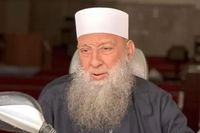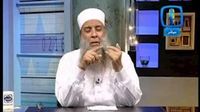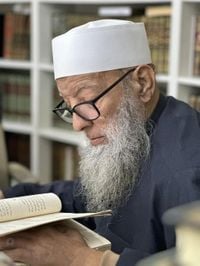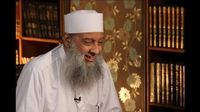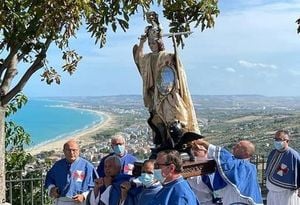Sheikh Abu Ishaq Al-Huwaini, a prominent Egyptian scholar of Hadith, passed away on March 17, 2025, after battling illness for some time. The announcement came from his son, Hatem Al-Huwaini, who shared the news via Facebook saying, "My father has passed away, and we belong to God and to Him we will return." Al-Huwaini’s death sparked sorrow not only within his family but throughout the broader Islamic community.
Al-Azhar Al-Sharif, one of the leading centers of Islamic scholarship worldwide, expressed deep condolences upon hearing the news. They described Sheikh Al-Huwaini as someone who dedicated his life to serving the Prophetic Sunnah and its sciences. The institution offered heartfelt prayers for his eternal rest and urged the community to honor his memory by continuing to learn and spread knowledge.
Born on June 10, 1956, in Huwain village, Kafr El-Sheikh Governorate, Sheikh Al-Huwaini was influential among scholars and students of the Salafi movement. He was known for his rigorous studies and teachings on Islamic jurisprudence and Hadith sciences. His passion for learning was evident early on, as he moved to Cairo to continue his education, where he studied at Ain Shams University. Al-Huwaini was particularly influenced by Sheikh Muhammad Nasir al-Din al-Albani, deepening his expertise and passion for Hadith.
For many, the scholar represented the epitome of dedication to religious education, focusing primarily on traditional Islamic teachings rather than venturing directly onto political grounds. His works reflect extensive knowledge and devotion to clarifying and correcting religious concepts, which he conveyed during lectures, books, and televised programs.
Unfortunately, Sheikh Al-Huwaini’s health declined significantly over recent months. He had been hospitalized, and the conditions worsened until he succumbed to illness on the evening of March 17. His family, including his son Hatem, had been vocal about the need for prayers during this difficult time, requesting support from community members.
His funeral is scheduled for March 18, 2025, after the afternoon prayer, at Masimair Cemetery in Doha, Qatar. Hatem shared details about the burial, emphasizing the importance of community support during their time of grief. He called for prayers to ask for mercy and forgiveness for his father, reinforcing the belief held by many Muslims: when losing a loved one, their spirits could be uplifted through prayers and good deeds.
Sheikh Al-Huwaini leaves behind a rich legacy filled with numerous contributions to the study of Hadith. He authored various books, facilitated numerous seminars and workshops, and frequently appeared on Islamic television channels where he discussed Islamic jurisprudence and the methods of Hadith compilation. His works have inspired many students and are regarded as significant resources within Islamic scholarship.
The scholar was not only known for his academic prowess but also for his bold stances on various doctrinal issues. He engaged critically with contemporary challenges facing the Islamic community and was often seen as unafraid to address contentious topics. Sheikh Al-Huwaini's impact extended beyond the classroom; he carefully balanced the delivery of complex theological concepts with practical applications, ensuring they were accessible to the general public.
Following his passing, many of his students and colleagues took to social media to express their condolences and share memories of the late scholar. His contributions to Islamic knowledge and the Hadith tradition will undoubtedly be cherished by generations to come. Friends and admirers have echoed sentiments of deep loss, mourning not just the scholar's death but the absence of his guiding presence.
Al-Huwaini’s legacy will live on through his teachings, writings, and recordings. He served as exemplifying the balance of dedication to knowledge and humility, inspiring fellow scholars, students, and advocates of Islam worldwide. The Islamic community will continue to honor his contributions through their dedication to learning and teaching the sciences of Hadith and Islamic studies. His passing marks the end of a significant chapter within modern Islamic scholarship, but his teachings will persist, guiding future generations.
